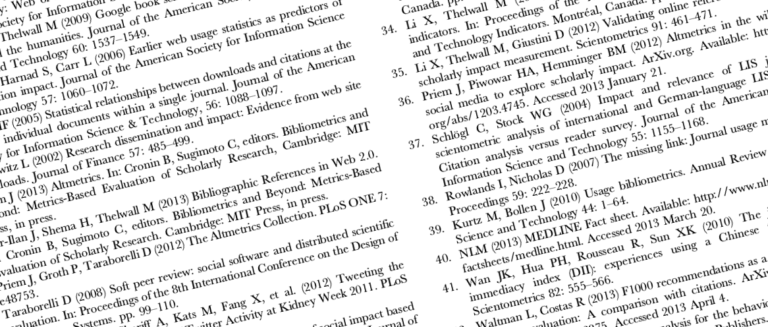Subcontracting is a commercial agreement made between your entity and a third party for the realization of an entire defined task. Financial support to third parties is a non-commercial agreement between you and a third party is for a sub-grant or prize. In other words, the difference between subcontracting and financial support to third parties lies in the nature of the transaction.
If the service that you are contracting is related to the realization of the task and has a commercial objective, it falls under subcontracting category cost. There is no official limit in the amount of the subcontracting.
Financial support to third parties can be of two natures: grants or prizes. For grants, it means you are providing a “sub-grant” to a third party with a non-commercial objective, such as a startup to develop a project. For prizes, you are granting a monetary reward to a third party because of a competition. Usually, for grants and prizes, you have to organize an open call, evaluate the proposals by external experts, and award the ones with the best grade. The limit of the financial support to third parties is set at 60.000€.
Financial support to third parties is only possible when foreseen for a specific topic in the work programme. Proposals involving financial support to third parties must clearly detail the objectives and the results to be obtained and include at least the following elements:
- a fixed and exhaustive list of the different types of activities for which a third party may receive financial support;
- the definition of the persons or categories of persons which may receive financial support;
- the criteria for awarding financial support;
- the criteria for calculating the exact amount of the financial support;
- the maximum amount to be granted to each third party (may not exceed EUR 60 000 for each third party unless it is necessary to achieve the objectives of the action) and the criteria for determining it.
The recipients of financial support do not become a party to the grant agreement (hence no need for an amendment) and the Commission therefore has no contractual link with them. This implies that the Commission can only turn to the relevant beneficiaries for any issue with regard to the third parties; in particular in the event of a recovery order at the end of the project, the Commission will exclusively turn to the beneficiary of the EU grant, who then may be asked to reimburse amounts which it has transferred as financial support to a third party. It is therefore highly recommended that beneficiaries establish contractual arrangements with the recipients.
Subcontracting costs as well as financial support to third parties have to be stated in the budget of the grant agreement.
More details about the difference between subcontracting and financial support to third parties can be found in the General Model Grant Agreement (GMGA) of Horizon Europe.
References
GMGA Data Sheet – Grant – Cost eligibility options:
Costs for providing financial support to third parties (actual cost; max amount for each recipient: EUR 60 000).
GMGA Article 6.2 – B. Subcontracting costs
Subcontracting costs for the action (including related duties, taxes and charges, such as non-deductible or non-refundable value added tax (VAT)) are eligible, if they are calculated on the basis of the costs actually incurred, fulfil the general eligibility conditions and are awarded using the beneficiary’s usual purchasing practices — provided these ensure subcontracts with best value for money (or if appropriate the lowest price) and that there is no conflict of interests (see Article 12).
Beneficiaries that are ‘contracting authorities/entities’ within the meaning of the EU Directives on public procurement must also comply with the applicable national law on public procurement.
The beneficiaries must ensure that the subcontracted work is performed in the eligible countries or target countries set out in the call conditions — unless otherwise approved by the granting authority.
Subcontracting may cover only a limited part of the action.
The tasks to be subcontracted and the estimated cost for each subcontract must be set out in Annex 1 and the total estimated costs of subcontracting per beneficiary must be set out in Annex 2 (or may be approved ex post in the periodic report, if the use of subcontracting does not entail changes to the Agreement which would call into question the decision awarding the grant or breach the principle of equal treatment of applicants; ‘simplified approval procedure’).
GMGA Article 6.2 – D. Other cost categories – D.1 Financial support to third parties
Costs for providing financial support to third parties (in the form of grants, prizes or similar forms of support; if any) are eligible, if and as declared eligible in the call conditions, if they fulfill the general eligibility conditions, are calculated on the basis of the costs actually incurred and the support is implemented in accordance with the conditions set out in Annex 1.
These conditions must ensure objective and transparent selection procedures and include at least the following:
- (a) for grants (or similar):
- (i) the maximum amount of financial support for each third party (‘recipient’); this amount may not exceed the amount set out in the Data Sheet (see Point 3) or otherwise agreed with the granting authority
- (ii) the criteria for calculating the exact amount of the financial support
- (iii) the different types of activity that qualify for financial support, on the basis of a closed list
- (iv) the persons or categories of persons that will be supported and
- (v) the criteria and procedures for giving financial support
- (b) for prizes (or similar):
- (i) the eligibility and award criteria
- (ii) the amount of the prize and
- (iii) the payment arrangements.
This cost will not be taken into account for the indirect cost flat-rate.
Financial Regulation – Article 204 – Financial support to third parties
Where implementation of an action or a work programme requires the provision of financial support to third parties, the beneficiary may provide such financial support if the conditions for such provision are defined in the grant agreement between the beneficiary and the Commission, with no margin for discretion by the beneficiary.
No margin for discretion shall be considered to exist if the grant agreement specifies the following:
- (a) the maximum amount of financial support that can be paid to a third party which shall not exceed EUR 60 000 and the criteria for determining the exact amount;
- (b) the different types of activities that may receive such financial support, on the basis of a fixed list;
- (c) the definition of the persons or categories of persons which may receive such financial support and the criteria for providing it.
The threshold referred to in point (a) of the second paragraph may be exceeded where achieving the objectives of the actions would otherwise be impossible or overly difficult.













